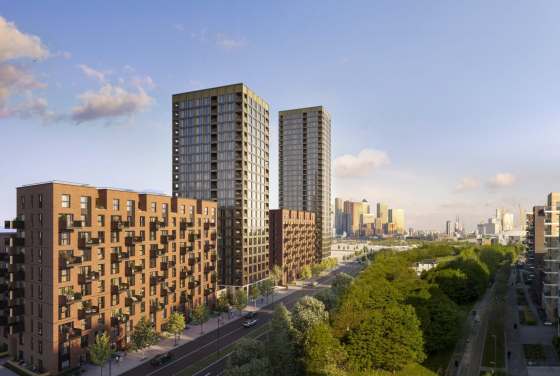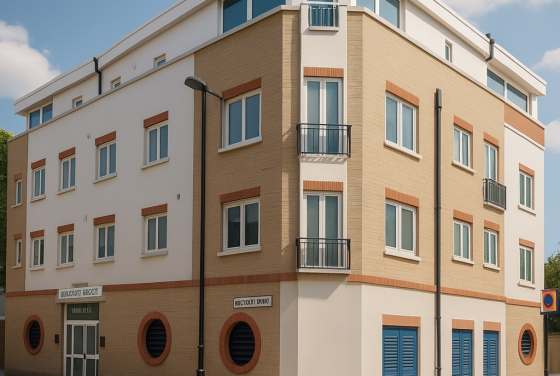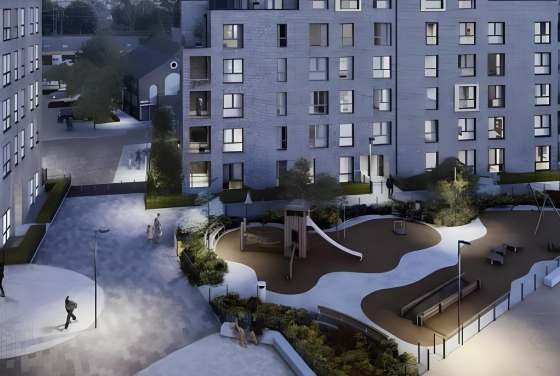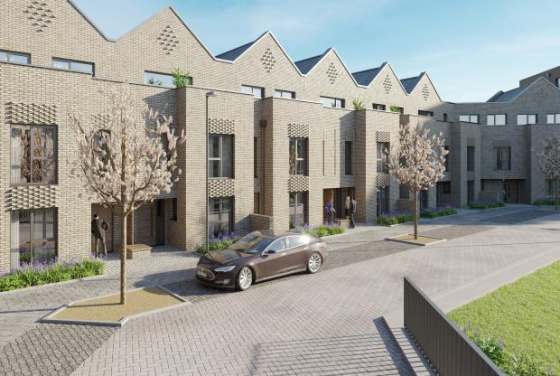Churchill Quarter, 1 Ethelbert Close BR1, delivers 410 new homes in Bromley Town Centre beside Library Gardens, 3 minutes walk to Bromley High Street and under 20 minutes rail to London Victoria, maximising capital growth from ongoing town centre regeneration.
Replacing 40 low rise homes with 7 to 15 storey blocks, Churchill Quarter offers rare large scale new build supply in BR1, giving buyers strong long term rental and resale prospects versus older stock constrained by conservation area controls.
Within walking distance of Church House Gardens.
Properties in this development on 02 March 2026
More information
Key features
What are you looking for?
Step 1 of 6ready to help you

What are you looking for?
Payment options
Features
- 410 new residential units replacing 40 existing homes.
- Building heights up to 15 storeys, exceeding surrounding architecture.
- Retail frontage along Library Gardens.
- Promenade with partial public access.
- Located adjacent to Library and Church House Gardens.
- Use of compulsory purchase orders to acquire property.
- Joint public-private development structure.
- Visual and environmental impact on a conservation area.
- Heritage concerns regarding overshadowing and scale.
- Active civic engagement in planning process.
Description
Urban Redevelopment in Bromley
The Churchill Quarter redevelopment proposes a sweeping alteration in the heart of Bromley. This residential-focused undertaking introduces 410 additional homes on land currently occupied by 40 existing properties in Ethelbert Close. The proposed development spans several structures ranging from seven to fifteen storeys tall, which would supplant the current low-rise dwellings.
Situated next to the historic Library Gardens and near the High Street, the project aims to deliver new residential units while integrating ground-level retail spaces. A central pedestrian thoroughfare dubbed the "promenade" is designed as a shared area for residents and the public alike. Despite assertions to invigorate urban viability, some question the long-term impact on heritage, light exposure, and public amenity spaces downtown.
Concerns Surrounding Heritage and Environmental Impact
The undertaking has faced objections from local civic groups, primarily regarding its visual scale and potential overshadowing of Library Gardens. The proposed high-rises surpass the height of existing buildings in the vicinity, like the adjacent theatre and library, and may dramatically alter the prevailing skyline. According to heritage assessments, diminished daylight and green space could undermine the character of this conservation area, which presently contributes to Bromley’s identity as a historic market town.
An additional worry involves the environmental effect on public green spaces. Library Gardens, gifted to the borough in 1900, risks substantial loss of sunlight and reduced usable greenery, replaced instead by hardscaping and shaded patches. Residents and campaigners argue these changes are inadequately offset by the proposed public access to the promenade. The transformation of the park’s edge into a retail frontage is also viewed as a commercialization of a previously tranquil civic asset.
Impact on the Local Community and Planning Process
The proposal entails the displacement of current residents from 40 existing homes in Ethelbert Close. These properties are slated to be obtained via compulsory purchase orders (CPOs), a legal process allowing local authorities to acquire private land for redevelopment. The Council has yet to finalize terms with impacted homeowners, many of whom have lived under planning uncertainty for several years. A public inquiry may occur if residents challenge the CPO.
While the Council and developer emphasize benefits such as improved retail presence and increased foot traffic, the development’s effect on social cohesion and local character remains a core issue for stakeholders. The application remains under consideration, and the outcome will influence both the housing supply and urban fabric of Bromley town centre.
Disclaimer*Property descriptions, images and related information displayed on this page are based on marketing materials found on the developer's website. 1newhomes does not warrant or accept any responsibility for the accuracy or completeness of the property descriptions or related information provided here and they do not constitute property particulars.
Buying an apartment in London – How much ROI and profit can it bring in 5 years?
capital
Local area map
Public Facilities
Neighbourhood around Churchill Quarter
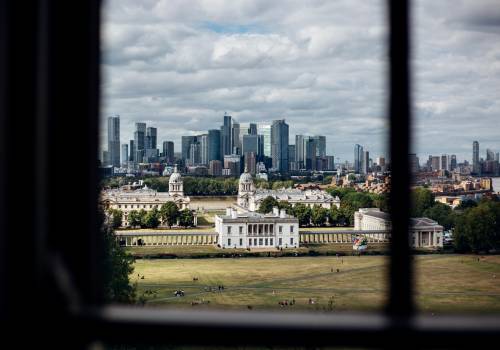
About South East London
South East London is a large part of the capital, comprising boroughs like Bexley, Lewisham, and Greenwich. Thus, someone might call it an area of contrasts or a diverse and multicultural destination. From riverside lifestyle to quirky dining options, South East London is somewhat a perfect mix of unmatchable things. Read on to discover the culture and history of Greenwich, the edgy lifestyle of Lewisham, and the splendid diners of Bermondsey. More about South East London →Sales office

Learn more
Developer
Similar homes you may like
Developer offers
FAQs about Churchill Quarter
Property Details
Prices
Amenities

Leave a request and specialists will select the property












